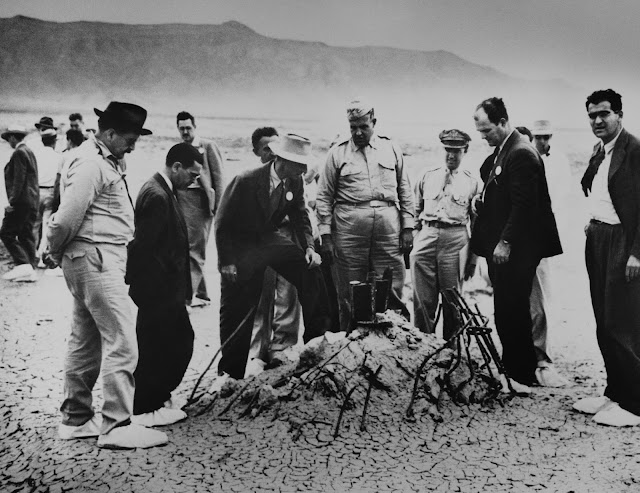Julius Robert Oppenheimer was born on April 22, 1904, in New York City. He grew up in a wealthy family that encouraged intellectual pursuits and artistic endeavors. As a child, Oppenheimer displayed remarkable intelligence and curiosity, often losing himself in books and scientific experiments.
After completing his high school education, Oppenheimer enrolled at Harvard University at the tender age of 18. There, he studied an array of subjects, including chemistry, literature, and philosophy, demonstrating the breadth of his interests. It was during this time that Oppenheimer's fascination with theoretical physics began to bloom.
The Road to Prominence
Following his graduation from Harvard, Oppenheimer ventured to Europe, where he studied under the guidance of prominent physicists, such as Max Born and Niels Bohr. These experiences broadened his horizons and solidified his passion for theoretical physics. Upon his return to the United States, he took up a teaching position at the University of California, Berkeley, where he continued his research.
By the 1930s, Oppenheimer's reputation as a brilliant physicist had started to gain traction. His work on quantum mechanics and the theory of positrons garnered considerable attention from the scientific community. He quickly ascended the academic ladder, earning accolades and respect from his peers.
The Manhattan Project: A Fateful Decision
When World War II engulfed the world, the United States initiated the top-secret Manhattan Project with the goal of developing an atomic bomb. Oppenheimer was handpicked to lead the scientific efforts. His deep understanding of nuclear physics, coupled with his leadership skills, made him the ideal candidate for this daunting task.
The decision to join the Manhattan Project was a defining moment in Oppenheimer's life. While he recognized the potential for devastating consequences, he believed that creating the bomb was essential to ensure American victory in the war and deter future conflicts. This internal struggle between his scientific duty and ethical concerns would haunt him for the rest of his life.
The Trinity Test and Its Aftermath
On July 16, 1945, the world witnessed the first successful detonation of an atomic bomb during the Trinity test in New Mexico. Oppenheimer, witnessing the tremendous power unleashed by his creation, famously quoted the Bhagavad Gita: "Now I am become Death, the destroyer of worlds."
The end of World War II marked a bittersweet moment for Oppenheimer. While he celebrated the allied victory, he also grappled with the moral implications of his work. In the post-war era, he became an advocate for international control of atomic weapons and spoke out against the unchecked proliferation of nuclear arms.
The McCarthy Era and Controversy
The 1950s brought about a dark chapter in Oppenheimer's life when he faced accusations of being a communist sympathizer during the infamous McCarthy era. His outspoken views and past associations with left-leaning individuals drew suspicion from government officials.
In a highly controversial trial, Oppenheimer's security clearance was revoked, effectively ending his involvement in classified nuclear research. The trial and its aftermath left a deep scar on Oppenheimer's reputation and led to a period of introspection and withdrawal from public life.
Legacy and Later Years
Despite the tumultuous events of his later years, J. Robert Oppenheimer's contributions to science and the development of nuclear technology remain unparalleled. His legacy is one of brilliant scientific achievements tinged with moral dilemmas. He continued to teach and contribute to theoretical physics, leaving a lasting impact on the field.
In 1963, Oppenheimer received the prestigious Enrico Fermi Award for his significant contributions to the advancement of nuclear physics. He spent his remaining years immersed in academia, mentoring young physicists, and reflecting on the consequences of his work.
Conclusion
J. Robert Oppenheimer's life was a tapestry of brilliance and complexity. From his early years as a gifted child to becoming the central figure behind the development of the atomic bomb, he left an indelible mark on the pages of history. Despite the controversy and ethical dilemmas that followed him, Oppenheimer's contributions to science and his role in shaping the world during one of its most pivotal moments can never be understated. His life serves as a stark reminder of the responsibilities that come with wielding scientific knowledge, and his story remains an enduring testament to the human capacity for both creation and destruction.
Here are some books about J. Robert Oppenheimer that you can buy.
Price: $ 15.99
Price: $ 8.99











